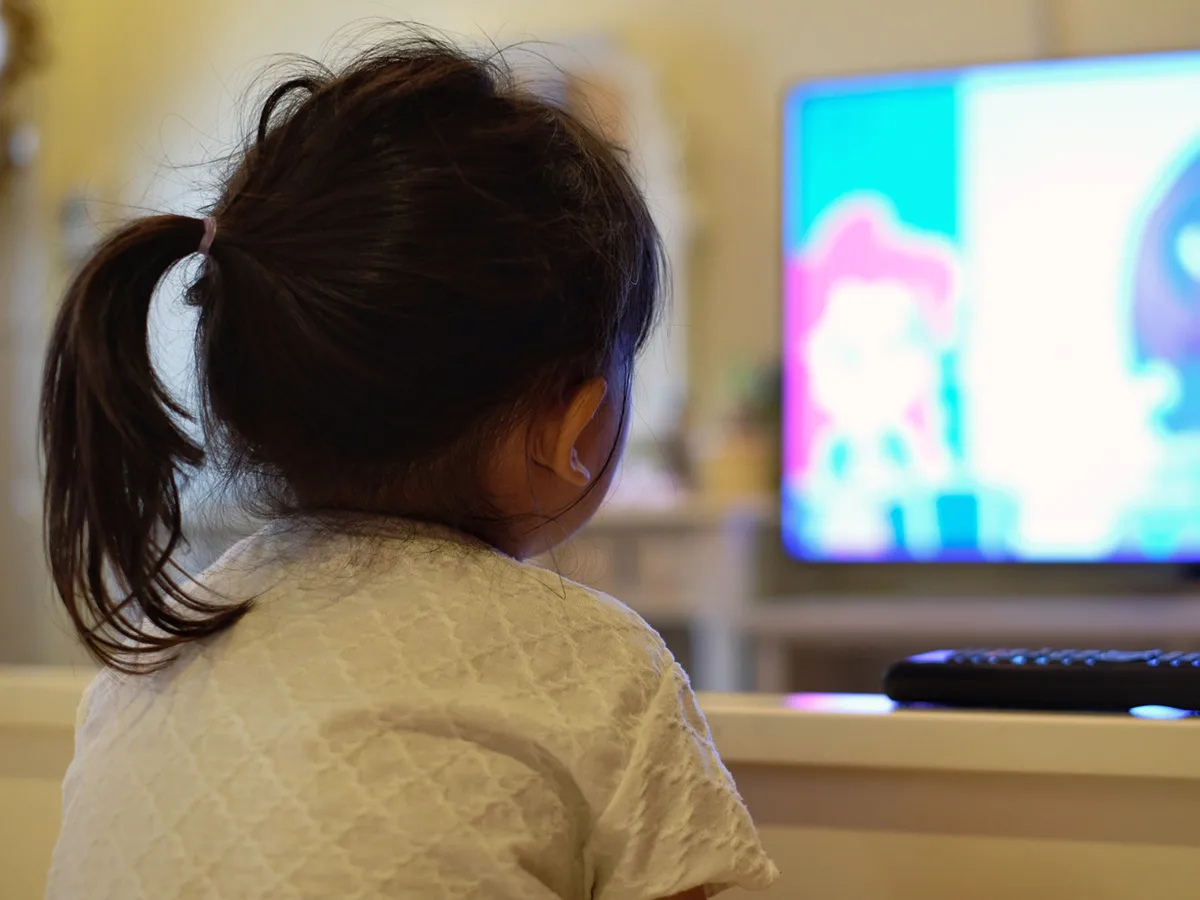/mothersopedia/media/media_files/E0VYut0WgTKZytQxwdO0.jpeg)
Most of a baby's brain development happens in the first 2 years of life. That's why it's so important for babies and toddlers to explore their environment and experience many sights, sounds, tastes, and textures. That is possible only if they will interact, play with others instead of gazing at their screens.

Screens captivate children’s attention in a way almost nothing else does, allowing us, parents a bit of a breather. But you might not know, it really impacts the developing brain of our young children. Perhaps that is why the World Health Organization recommends no screen time for babies under 2 and no more than one hour of screen time a day for those aged 2 to 4.
/mothersopedia/media/media_files/m3L9GAwbabgbvYwYjtuB.jpeg)
How screen time impacts brain development?
- High Screen time effects cognitive development: As part of a major research study of thousands of children to try to understand the impact of screen time on young children, the National Institutes of Health (NIH) found that children who reported more than two hours a day of screen time got lower scores on thinking and language tests. High levels of screen time during the early years can affect cognitive development and executive functioning in later childhood.
- High screen time reduces ability to concentrate : A new study suggests that too much screen time during infancy may lead to changes in brain activity, as well as problems with executive functioning — the ability to stay focused and control impulses, behaviors, and emotions — in elementary school.
- High screen time effects lifestyle: If children under the age of two, are exposed to high level of screen time, it has been observed that it leads to development of a sedentary lifestyle in later life, which is then associated with obesity, high blood pressure, and poorer mental health.
- Screens reduce empathy
Research has shown that screen time inhibits young children’s ability to read faces and learn social skills, two key factors needed to develop empathy. Face-to-face interactions are the only way young children learn to understand non-verbal cues and interpret them. - Screen time causes sleep disruption: Additional research has shown links between screen time and toddler obesity, sleep disruption during early childhood, and diminished fine motor development.
- Excessive Screen time delays emotional and social developmnt in babies: Exposure to screens reduces babies’ ability to read human emotion and control their frustration. It also reduces the activities that help boost their brain power, like play and interacting with other children.
- Early exposure to screen delays language development: Researchers say that young children who have more access to screens develop lower communication and cognitive abilities because screen time takes away from the experiences that genuinely support learning.
How to Balance and Manage Screen time in young babies?
Screen time and digital technology use can be part of a healthy lifestyle when they’re balanced with other activities that are good for your child’s development. Screen time is really hard to minimize to zero as we are in tech-era, we are surronded by big screens everywhere.
/mothersopedia/media/media_files/b9sxxhMuqK9BhCCeKBAa.png)
- For children younger than 18 months, discourage use of screen media other than video-chatting. Use audios of nursery rhymes, or bluetooth speaker to play music instead of switchng screens in front of them.
- For parents of children 18 to 24 months of age who want to introduce digital media, advise that they choose high-quality programming/apps and use them together with children, because this is how toddlers learn best. Letting children use media by themselves should be avoided.
- Screen time in young children can be replaced by age-appropriate physical activity, playtime, as well as social and interactive opportunities with peers, parents, and caregivers.
- Travel time don’t have to mean screen time. Traveling without a device usually means carrying more stuff with you like books, crafts (play dough, washable markers, pipe cleaners and pom poms) and snacks, as well as accepting that your child is going to take much of your focus.
- Screens should not be used merely to keep young children occupied. Babies need humans, not screens to learn.
- Get your child moving, especially outside, playing games of chasey, hide-and-seek or building a castle out of boxes, clothes baskets.
- Encourage play and friendship with others, Plan playdates with other children.
- Aim for short screen time sessions, try to set a screen beakers after every 15-30 minutes according to the age.
- Adopt digital detox period before going to bed, or meal time should be gadget free.
It is advisable to mould yourselves before you try to mould your children. Try not to use your private mobile phones, gadgets in front of them for long hours. Family rules can help you balance screen time and other activities for your young children.
Be a role model for them, spend time outdoors, and with family instead of gazing on screens.
LOVE AND SUPPORT ALWAYS...!!
/mothersopedia/media/agency_attachments/DvAQhzwm8u9LzqFtI07D.png)
 Follow Us
Follow Us